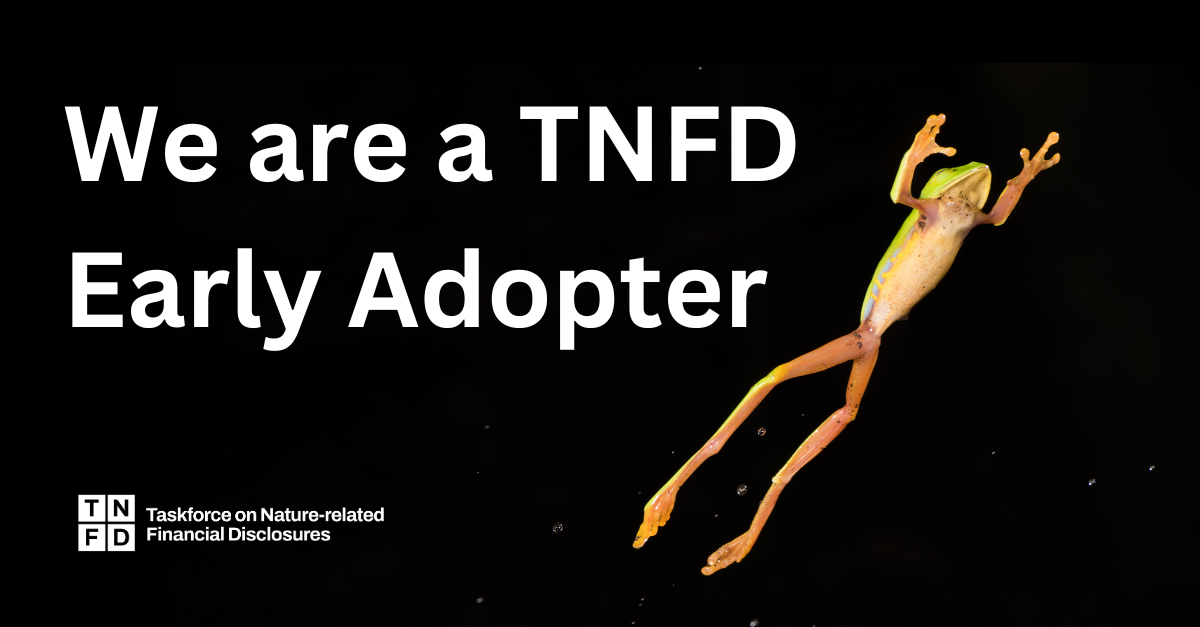Trends and Importance of Biodiversity Issues
Corporate operations depend on natural resources and ecosystem services—collectively referred to as natural capital. The Natural Capital Protocol clearly underscores the importance of biodiversity to the health and stability of natural capital1. For example, rich biodiversity can help mitigate the impacts of extreme weather events such as floods and droughts, accelerate ecosystem recovery, and support fundamental processes such as carbon cycling, water cycling, and soil formation. Thus, biodiversity is not only an integral part of natural capital but also the very foundation of ecosystem services.

With rapid economic growth, the heavy consumption of resources is placing mounting pressure on the natural and ecological environment. In 2024, the Intergovernmental Science-Policy Platform on Biodiversity and Ecosystem Services (IPBES) released the Nexus Assessment Report on the Interlinkages among Biodiversity, Water, Food and Health under Climate Change. The report indicates that biodiversity in every region of the world is declining by 2% to 6% per decade. More than half of the global population currently lives in areas experiencing biodiversity loss, water scarcity or declining water quality, food insecurity, heightened health risks, and severe impacts from climate change. If current economic activities and the drivers of biodiversity loss are not effectively managed, they will significantly undermine humanity’s food security, access to clean water and water quality, public health, and capacity to adapt to climate change.
In 1992, at the United Nations Earth Summit, the UN adopted the Convention on Biological Diversity (CBD), establishing three primary biodiversity objectives: (1) Conservation of biodiversity—protecting rare species and ecological environments; (2) Sustainable use of biodiversity resources—utilizing natural resources responsibly without damaging ecosystems; and (3) Fair and equitable sharing of benefits arising from the use of genetic resources—ensuring that the benefits from developing natural resources (e.g., medicinal plants, genetic resources) are fairly distributed to relevant countries and communities. Unfortunately, the convention lacked concrete standards and detailed implementation guidelines, leading to significant divergence in national practices and allowing global biodiversity and natural environment challenges to continue to worsen.
In 2022, the United Nations Biodiversity Conference (CBD COP15) held in Montreal, Canada, adopted the Kunming-Montreal Global Biodiversity Framework (GBF), setting out key pathways and targets for biodiversity action through 2030. A central goal of the framework is to “ensure that by 2030, at least 30% of degraded terrestrial, inland water, marine, and coastal ecosystems are effectively restored to enhance biodiversity, ecosystem functions and services, ecological integrity, and connectivity2.”The framework also calls for companies to regularly monitor species richness and environmental quality to assess and manage biodiversity risks, thereby reducing impacts on business operations. At COP16, which concluded in 2024, discussions on biodiversity targets continued, resulting in the adoption of the Planning, Monitoring, Reporting, and Review (PMRR) mechanism for national biodiversity targets under the GBF. This mechanism aims to support countries in setting and implementing biodiversity targets to achieve the long-term vision of the Kunming-Montreal Global Biodiversity Framework.
Environmental Management Milestone
ASUS has long implemented systematic management of nature-related and environmental issues. In 2008, its operations centers obtained ISO 14001 Environmental Management System certification. Starting in 2013, supplier environmental footprint assessments were incorporated into supply chain management.
In 2018, ASUS launched its Environmental Profit and Loss (EP&L) initiative, focusing initially on notebook products, and published its first EP&L report. In 2019, ISO 14001 certification was established as a mandatory requirement for qualified suppliers. To gain a comprehensive understanding of the environmental impact of ASUS’s operations and value chain, the EP&L scope has been expanded annually to include more core products, and by 2021, it covered products accounting for 90% of the company’s revenue. In response to the Kunming- Montreal Global Biodiversity Framework requirements for corporate biodiversity monitoring and risk management, ASUS in 2024 leveraged the EP&L framework to assess the impacts of its operational value chain on the natural environment.
In 2024, in accordance with the latest disclosure guidance under the TNFD reporting framework, ASUS published its first Natural Impact Assessment Report, established the ASUS Biodiversity Policy, and extended its biodiversity issue identification process. The environmental impacts of both ASUS operations and its suppliers were formally incorporated into the company’s sustainability management scope. In the same year, ASUS launched its biodiversity project— the Dasyuehshan Middle-Altitude Pangolin Habitat Enhancement and Conservation Project becoming one of the first companies participated the Forestry and Nature Conservation Agency’s Carbon Sink and Biodiversity ESG Project Matching Platform. In 2025, this project received the Annual Biodiversity Achievement Certificate, making ASUS one of the first companies certified by the Agency.

Biodiversity Related Initiatives

Forest Stewardship Council Climate Coalition
Since the introduction of Forest Stewardship Council (FSC) sustainable pulp in 2023, ASUS has continued to deepen its connection with the organization. In addition to being invited to share innovative packaging designs at the FSC™ Asia-Pacific Business Forum, ASUS has become a member of the FSC Climate Coalition. This membership allows ASUS to engage with multinational corporations, experts, and scholars in discussions on climate change and biodiversity issues.
Visit FSC official website
BCSD Nature Positive Initiative Platform
In response to the growing international attention on biodiversity, ASUS joined the “Biodiversity Initiative Platform” launched by the Business Council for Sustainable Development of Taiwan (BCSD Taiwan) in 2023. Through cross-sector dialogues and methodological capacity-building programs, the platform enhances understanding of emerging biodiversity-related issues.

TNFD Early Adopter
The Taskforce on Nature-related Financial Disclosures (TNFD) working group encourages businesses to adopt this emerging reporting framework. ASUS has voluntarily committed to publishing a nature-related financial disclosure report for the 2025 fiscal year.
Visit TNFD official website1. Natural Capital Protocal
2. "Connectivity" refers to the ecological linkages between different habitats that allow species to move freely, forage, and reproduce. When forests are fragmented by roads, rivers are blocked by dams, or wetlands are divided by development, previously intact ecosystems become isolated “ecological islands.” This isolation forces plant and animal populations apart, preventing genetic exchange and ultimately leading to inbreeding and population decline. Maintaining such connectivity not only ensures that animals can migrate safely but also allows plant seeds to disperse into new areas, helping to preserve genetic diversity and sustain the health of ecosystems.

